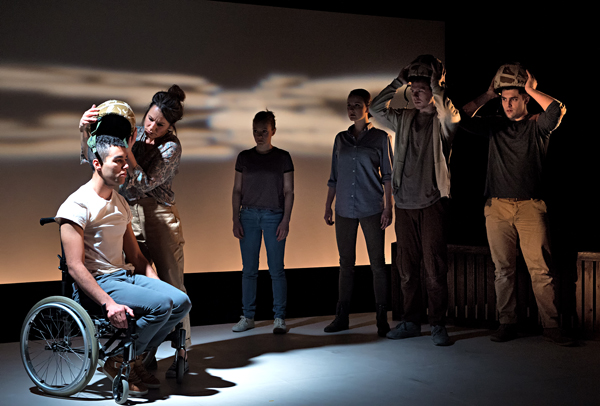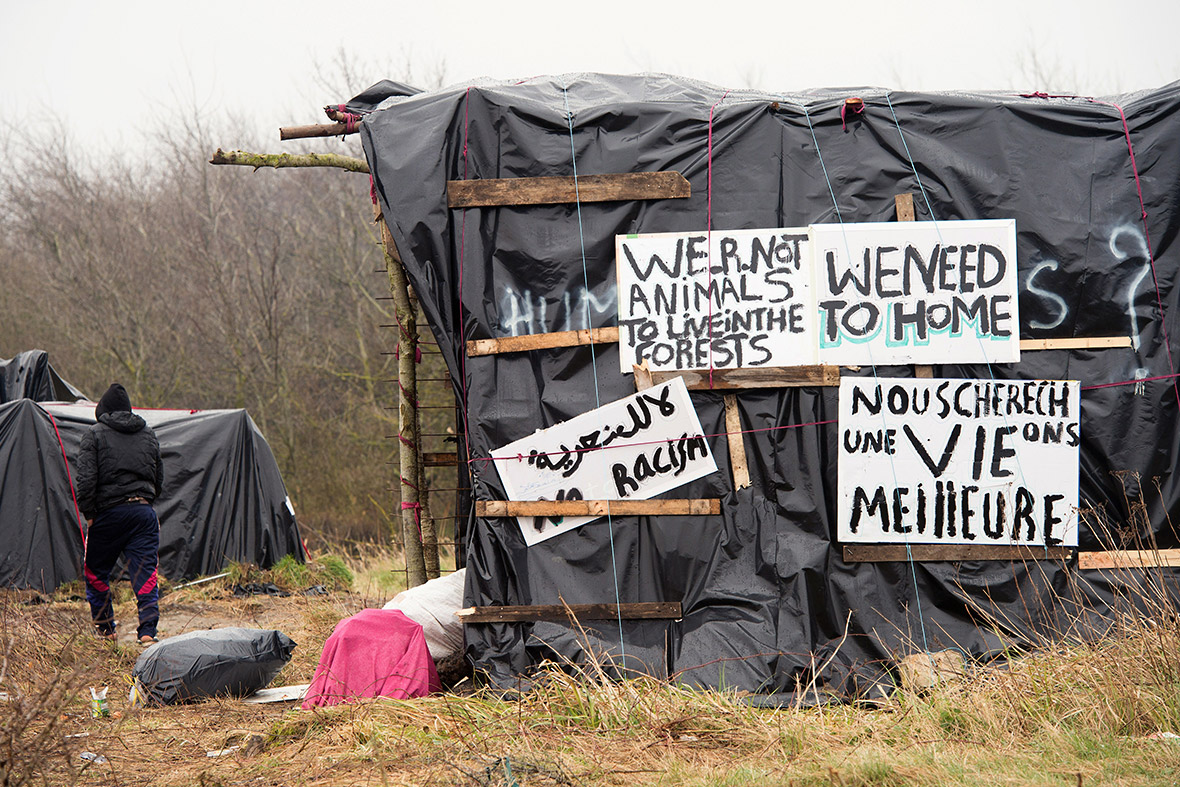
Here you will find a collection of News, Muse News (things that inspire my writing) and Reviews.
A century ago, Wilfred Owen, one of the greatest of the first World War poets wrote ‘Dulce et Decorum est pro Patria ‘ [It is sweet and right to die for your country] It was a bitter commentary on the savagery of war, written from Wilfred Owen’s personal experience. Move forward to the present day, and Owen Sheers, also a poet, gives a dramatised account of three young men who leave Bristol to fight in Afghanistan.
Has much has changed? Absolutely nothing. Because however ‘sophisticated’, however ‘primitive’ the weaponry, now as then, the outcome is the same, the probablity of death or terrible injury. Of the three young soldiers, one is blown up by an IED, another loses both legs, the third loses his mind. From the outset, we’re faced with the shocking reality of war. The title, ‘Pink Mist’ is a reference to the fine cloud of blood which enters the atmosphere after a soldier is blown up.
The opening scene shows the six characters, the three soldiers and their wives or mothers, enacting a synochronised and poetic dramatisation of their lives. This is physical theatre at its best. Carefully choreographed, their gestures and movement communicate firstly, their experience of the everyday, growing up in Bristol, then the lure of the Army recruitment, with its promise of excitement and challenge in the company of friends. But this is to be short lived for what follows is the reality; the tragedy and the futility of war.
The background sounds of war, such as the sudden explosion which is coupled with a woman’s long, drawn out scream, adds to the horror. And through it all, is Owen Sheer’s evocation of the men’s thoughts and feelings, dramatically expressed in verse, as in a Greek tragedy. The production of ‘Pink Mist’ is brilliant, each part, the script, the acting, the lighting and the sound all contribute to a profound understanding of ‘the pity of war.’ It’s tough to watch and must have been excruciating for the actors, but it’s a powerful comment on the reality of war.

Who hasn’t been entranced by Chagall’s surreal and vividly coloured paintings of lovers surrounded by flowers and clasped in an embrace flying across the sky? And who wouldn’t be captivated by the writer’s Daniel Jamieson’s portrayal of Chagall’s love affair with his first wife. Marc Chagall played by Marc Antolin and Bella Chagall by Audrey Brisson, perfectly capture their childlike delight for each other and their joy for life. It’s a marriage made in theatrical heaven, and brought to Bristol’s Old Vic by Emma Rice, formerly Director...
read moreThere’s three kinds of writers; one embarks on a journey with a map, they know where they’re going. Another type gets in a car and drives as far as they can see their headlights. A third combines the two approaches. They have a vague idea of where they’re going and if or when they get lost, then they bring out the map.Which are you? I’ve always been the ‘let’s see where this is taking me’type and that was true even when I wrote non-fiction. It usually worked. I’d begin with the problem, move onto a discussion and then wrap it all up. So far so good. It worked for shortish academic papers of about five thousand words, but what of the novel?
With ‘Between the Shadow and the Soul’, I was intrigued why a woman might snatch someone’s baby. Popular explanations are infertility or a miscarriage, but as a therapist I’d worked with clients with trauma and I knew at first hand, trauma can resurface when a similar set of circumstances re-occurr. So that gave me a motive for Flori, the main character inteh novel. It was terrible event in her childhood, and everything followed from that.
But continuing with the analogy of the car, a writing journey can be difficult. It’s like a plan to drive to Scotland. You could go up the Motorway until you get there, or alternatively, head towards your destination with a map, but then divert off, to see, for example, the Lakes. The third way, just drive. No map, no idea. All you know is Scotland’s somewhere up north. For my first novel, I chose this as a ‘route’ but I didn’t like the outcome. So I rewrote it. Totally. It took time.
What’s best? It all depends. In the last analysis, you’re the driver. You might want to try different ‘routes’ before making that final decision. You’re the driver.

I wasn’t prepared, I’d read no reviews and I knew nothing about this play other than I’d been told it was about to transfer to the West End and was written by a French Canadian. Relevant? I think not. Five characters; a wife, a husband, two neighbours also a wife and husband, but older and with an adult son with a nervous facial tic.
The relationships are bizarre and the characters perform a complex psychological but unlikely dance. Has the writer read Freud or some other analytic writing? Maybe or maybe not, but the actions and dialogue at some level make a kind of crazy sense.
We start with the young wife, tortured by her baby’s cries, a husband who isn’t interested in sex, the intrusive neighbours who want to help, the son desperate with zilch social skills wanting to escape from his crazy parents. We end with the young husband swopping roles with the inadaquate son and he, starved of sex moving in with the young wife. It’s a win-win situation. The intrusive mother having a new [adult baby] the young husband finding a mother [the neighbour] and the young wife finding a sex starved lover [the son]
So what holds it together? In two words-desire and loss, mediated through the memories of mother and a baby but enough, I don’t want to spoil the ending.
Dialogue is brilliant, acting superb, if shouty, and unlike ‘Abigail’s Party’ to which it may be compared, all are either psychotic or on some mood altering medication, self or professionally prescribed.

‘THE LADY IN THE VAN’
Alan Bennett is a national treasure. He’s also a gifted writer, a humorist and a shrewd judge of character. These all come together in his latest film. ’The lady in the van’ is a superb characterisation of an elderly vagabond who randomly parks her van with herself in it, along the streets of Camden in London. One day, the van breaks down and she persuades Alan Bennett who just happened to be passing, to help her push the van to an area which more suits her. But she remains in the area and from that moment on, the two begin a kind of psychological war dance.
What’s wonderful about this film is the writer’s honesty because it’s not just about her, it’s about him and how he deals with the waves of hostility as well as the compassion he feels for this elderly renegade. Profoundly mistrustful of him, she also knows how to operate and it’s only after her death, that the pieces of her sad life come together.
Ever wondered why sci-fi and horror films and books have such a hold on our imagination? Might it be the fear of being invaded by an alien force who want what we have, whether real or imagined, and will stop at nothing to get it; risking their lives in the process. The press cover of the desperation of migrants is similar, presenting them as sub-human and capable of the most extreme behaviour and therefore by implication ultimately destructive of the Western way of life. There is a reality and there is a fantasy but there is a difference between them and the hysteria of the press and others doesn’t help. Maybe reading or watching a film which works with these primal fears may put such fears into perspective.

A sequel to Between the Shadow and the Soul, this is the story of Seb, a financier. From an affluent background, Seb is angry, young, cynical, and coming to the attention of a private security firm, he’s recruited to infiltrate anti-capitalist groups. As part of his remit he befriends Nixie, an activist member of Grass Roots. Nixie knows nothing of his history or of his role as an undercover agent and tells him of Grass Roots’ plans to sabotage Dunwich Nuclear Power Station by crashing the computer systems. Seb agrees to help, knowing...
read moreFollowing the publication of my first book Between The Shadow and The Soul, I was invited to write a piece for the Guardian newspaper about the link between my career and my writing. I have reproduced the opening of the article below, along with a link where you can read the rest of it. “I had to leave child protection, but wanted to write about how hard it is…” Child protection: the daily deprivations of poverty and the ever-present chaos of incipient violence. Experiences that burn into the brain. Watching cases pass back...
read more“I waited for ten minutes and then I closed in on him. I could see JF sitting at his desk under the window. His hand was on the touch pad of his computer and he was looking intently at the screen. I had to be fast. I stood on the pavement in the shadows, pulled on my mask, then keeping to the wall, slithered down the steps. I reached basement level. I stood watching him. He was oblivious to my presence and to the security light which snapped on. I tapped lightly on the window. He glanced up. I pressed my contorted rubber face against...
read more“She moved closer. She knelt down and looked into the crib so she could see him properly. She was so close she could feel his soft breath and hear the rhythm of his breathing. His breath was her breath. That’s how close she was. As if they were joined and were one. He was adorable. Innocent, helpless, vulnerable, totally dependent, he had thick, dark hair, and he’d fallen asleep on his back.” Flori is a successful, attractive young woman living and working in London when in the early hours of the morning, in a moment of madness,...
read more